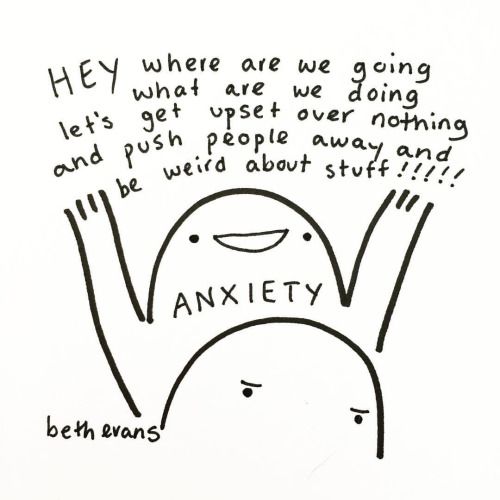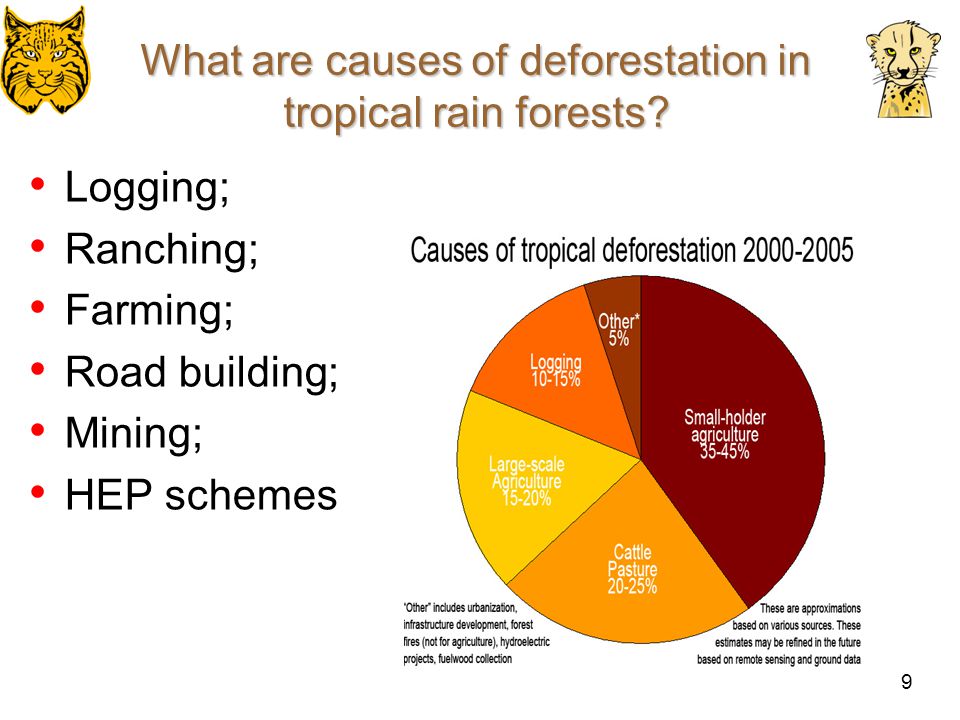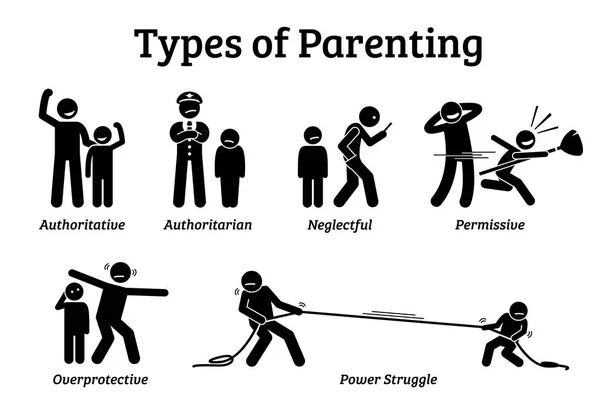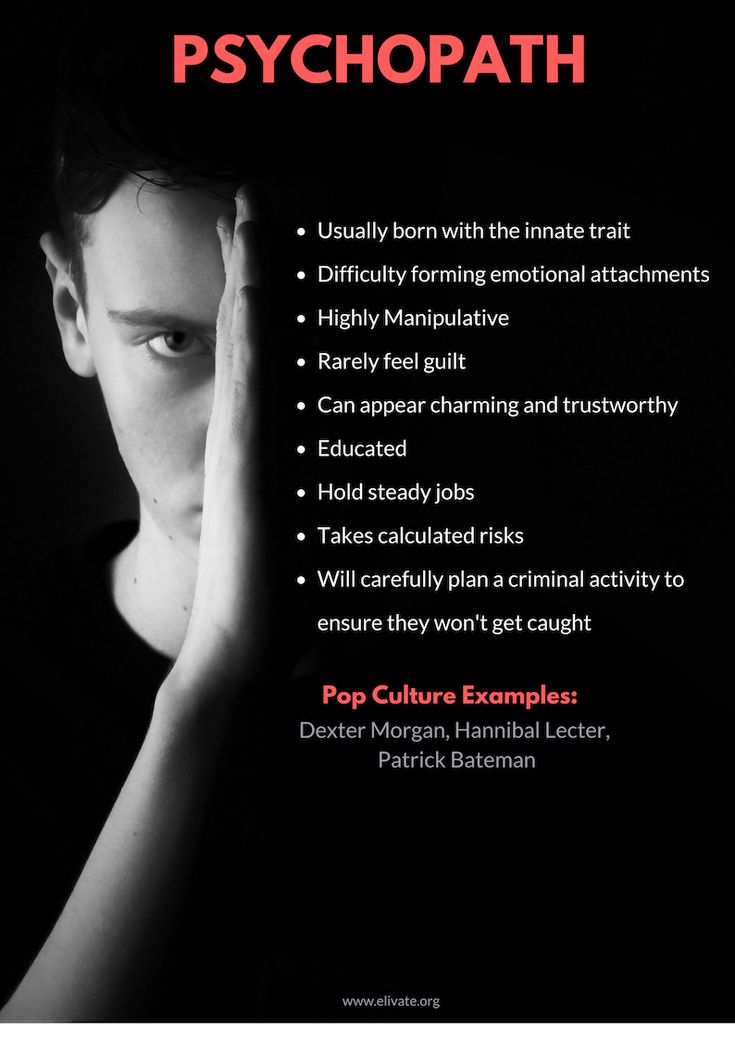Breakup advice for a friend
What To Say To A Friend Going Through A Breakup
Breakups will always suck. It doesn’t matter if the relationship ended with a dramatic fight or a carefully navigated and loving conversation—the aftermath can convince someone that she will never know happiness or find love again. (False on both counts.) This can be especially hard to watch when it is your friend going through a breakup: You know she's awesome and she'll find love again, but she's still crying into a glass of pinot grigio and deleting pictures of her ex off her Instagram every night. It’s often painful and confusing to adjust to life as a single person, but everyone gets by with a little help from their friends, right? Here's what to say to a friend going through a breakup—and what not to say, too.
The Best Things To Say
1. "You're allowed to be sad."
Sometimes people feel ashamed by the depth of their sadness post-breakup, especially if it was a short, intense fling or someone they know they're better off without. Validating your friend’s feelings gives her permission to work through them and get closer to moving on. After you tell her it's completely fine to be upset, explain that you're always available to listen. "The best thing is just having someone listen to you as you talk your way through the sadness," says Marie L., 26.
2. "I promise, you're so much better off."
The trick to making her believe this one is coming prepared with proof—otherwise it can seem generically insincere. "List concrete reasons they're better off without the ex, like now they can move to the new city they've always wanted to try," says Alana R., 26. It doesn't even have to be something that monumental—anything that helps her realize there's exciting potential in being single will do.
3. "You won't always feel this way."
It can be hard to remember the thrill of a new love when you're mourning the loss of a previous one. "It's helpful when a friend puts it in perspective,” says Cindy H., 25. “Heartbreak doesn't last forever. You feel it, accept it, and eventually meet someone better." Just be sure to say this one in an I'm-cheering-you-on way, because with the wrong tone, it can accidentally seem like you're minimizing their feelings.
“Heartbreak doesn't last forever. You feel it, accept it, and eventually meet someone better." Just be sure to say this one in an I'm-cheering-you-on way, because with the wrong tone, it can accidentally seem like you're minimizing their feelings.
4. "It's OK to have a bad day."
“One day at a time” is a staple of 12-step programs, but the concept behind it works for heartbreak, too. Remind your friend of positive accomplishments and experiences happening in the here and now. Giving someone permission and space to grieve can help them find the energy to make the next day a little bit easier. "For me, having a declared one-day 'grieving' process is just what I need,” says Genevieve S., 24. “I get it out of my system knowing that tomorrow, it'll be much better.” Of course, most breakups require more than one day of mourning, which is why this is a better approach than trying to ignore negative emotions.
5. “Rebounds are great (but only when you’re ready)!”
There’s no one-size-fits-all time limit for getting over a breakup, but that doesn’t mean it can’t be helpful to be reminded that dating and hookups can be a lot of fun.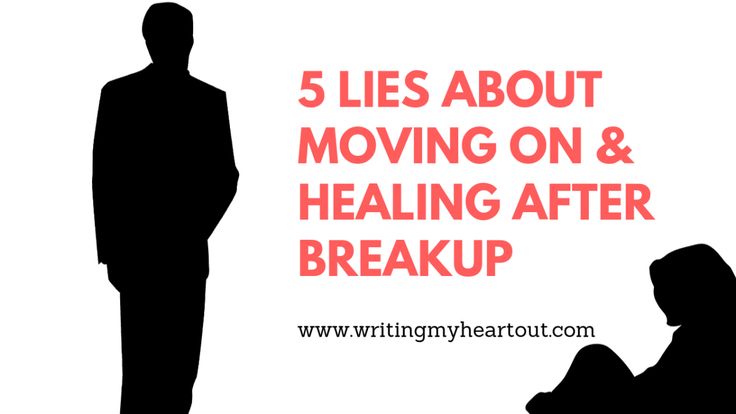 Lilli P., 32, says she got this advice from her mother, but in slightly more ribald language: “My mother has literally told me, ‘The best way to get over someone is to get under someone else.’” Good friends will encourage you to enjoy life, whether that means dancing with a stranger, swiping like a maniac on Tinder, or taking time away from dating—whatever it takes to affirm that you were special and whole when you were single before and you still are now.
Lilli P., 32, says she got this advice from her mother, but in slightly more ribald language: “My mother has literally told me, ‘The best way to get over someone is to get under someone else.’” Good friends will encourage you to enjoy life, whether that means dancing with a stranger, swiping like a maniac on Tinder, or taking time away from dating—whatever it takes to affirm that you were special and whole when you were single before and you still are now.
The Worst Things To Say
1. "There are plenty of fish in the sea!"
Genevieve S. nominated this response because it's "just plain terrible" to hear in the midst of heartbreak. "In that moment, it trivializes the relationship that ended," she says. "It makes it seem like you can move on quickly because it was nothing, and that's not fair."
2. "You'll find someone else."
Very similar to the above, but it's worth noting that two women think this type of response is the absolute worst. Marie L.'s reason for hating this one: "Ugh. It's so unhelpful. It's the last thing I want to hear when I'm still in the stages of mourning the person I lost." According to her, it's basically the same as saying ‘Oh, sure, you can't have the person you want, but you can have someone else." Also, your distraught friend might look at you with tears in her eyes and be, like, 'But how do you know?' Then you'll be heartbroken right along with her.
It's so unhelpful. It's the last thing I want to hear when I'm still in the stages of mourning the person I lost." According to her, it's basically the same as saying ‘Oh, sure, you can't have the person you want, but you can have someone else." Also, your distraught friend might look at you with tears in her eyes and be, like, 'But how do you know?' Then you'll be heartbroken right along with her.
3. "They were an asshole anyway."
Sure, it may be true, but your opinion might come as a surprise to your friend. "It's, like, 'Wow, how long have you thought I was stupid for liking him?" says Alana R. Instead, try reflecting some of her complaints about her ex back to her in a constructive way (and only on the days she actually wants advice, not when she just wants to cry/eat her feelings/generally indulge her sadness). Something like, "You'd always mentioned how mean he could be during fights. I know it hurts now, but you won't ever have to deal with that again, and that's beautiful. "
"
4. "You're so much cuter than her."
There's no need to commit woman-on-woman crime when cheering up your bud. "Superficial things like who's hotter or who's dating more attractive people after don't matter," says Cindy H. "All that matters is that I was attracted to my ex, which is why I dated them in the first place." Rather than focusing on how your friend stacks up to her ex's new boo, explain how amazing she is all on her own. Tell her that even though you know she's strong enough to get through this, you'll be there for the totally normal moments when she doesn't believe that herself.
5. “Couldn’t you have given them what they wanted?”
Compromise is essential in a healthy relationship, but there are some impasses that no one can’t be overcome —and that shouldn’t be questioned. “After a very difficult breakup—we loved each other, but he wanted children and I definitely did not—someone told me, ‘Well, you know, couldn't you just have one kid, for him?’” says Jennifer P. , 44, about a breakup that happened in her mid-30s. If the person you’re splitting from can respect your choices, your support system can do the same. Breakups that happen because two people want different things don’t have to get ugly, and there doesn’t have to be a villain. Don’t shame someone for knowing herself well enough to make a hard choice.
, 44, about a breakup that happened in her mid-30s. If the person you’re splitting from can respect your choices, your support system can do the same. Breakups that happen because two people want different things don’t have to get ugly, and there doesn’t have to be a villain. Don’t shame someone for knowing herself well enough to make a hard choice.
6. “Everything happens for a reason.”
This cliche is an infuriating thing to say to someone going through a difficult time. Hearing it can leave a friend feeling like you’re not listening at all. After her marriage dissolved, Stephanie S., 38, says that this was the exact opposite of what she wanted to hear. “It was dismissive of what I was feeling and the huge hole that was now in my life,” she says. “I was committed to spending my life with her,” and comments like this diminished the magnitude of her choice to get married and why she felt so devastated after the breakup. If you ever feel the urge to say this, stop yourself. Admit you’re not sure what to say, but that you support your friend and love them even when they’re sad.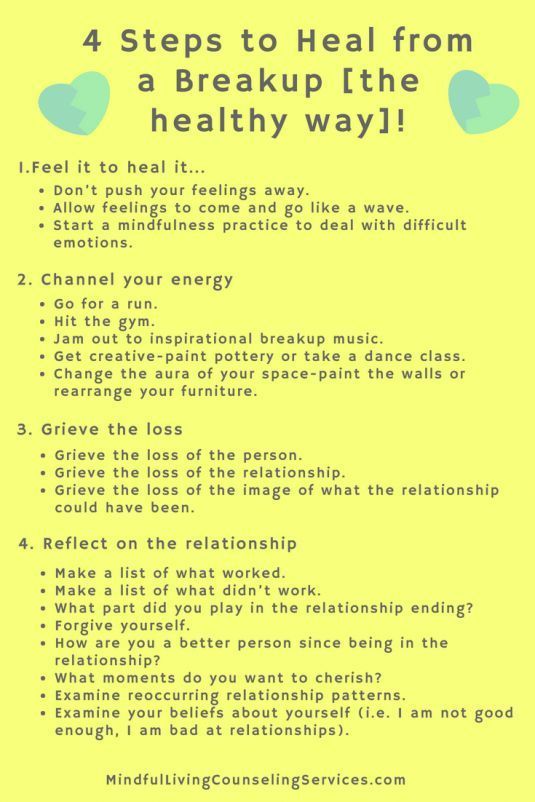 Tell them that in good times, too. You don’t need a reason to show a friend you value her.
Tell them that in good times, too. You don’t need a reason to show a friend you value her.
14 Tips To Help A Friend Through A Breakup, From Therapists
LoveHow To Actually Help A Friend Through A Breakup, From Relationship Experts
Written by Stephanie Catahan
Stephanie Catahan is a certified health coach, community leader, reiki practitioner, and writer. She has a psychology degree from University of California, Berkeley and health coaching certifications from Duke Integrative Medicine and Precision Nutrition.
How To Actually Help A Friend Through A Breakup, From Relationship Experts
How To Actually Help A Friend Through A Breakup, From Relationship Experts How To Actually Help A Friend Through A Breakup, From Relationship Experts How To Actually Help A Friend Through A Breakup, From Relationship Experts How To Actually Help A Friend Through A Breakup, From Relationship Experts How To Actually Help A Friend Through A Breakup, From Relationship Experts How To Actually Help A Friend Through A Breakup, From Relationship Experts
Image by fizkes / iStock
How To Actually Help A Friend Through A Breakup, From Relationship ExpertsFebruary 20, 2022
Share on:
Share on: How To Actually Help A Friend Through A Breakup, From Relationship Experts How To Actually Help A Friend Through A Breakup, From Relationship Experts How To Actually Help A Friend Through A Breakup, From Relationship Experts How To Actually Help A Friend Through A Breakup, From Relationship Experts How To Actually Help A Friend Through A Breakup, From Relationship Experts
The only thing that might be as painful as getting thrashed around by the reality-warping roller coaster of a breakup is watching someone else go through it.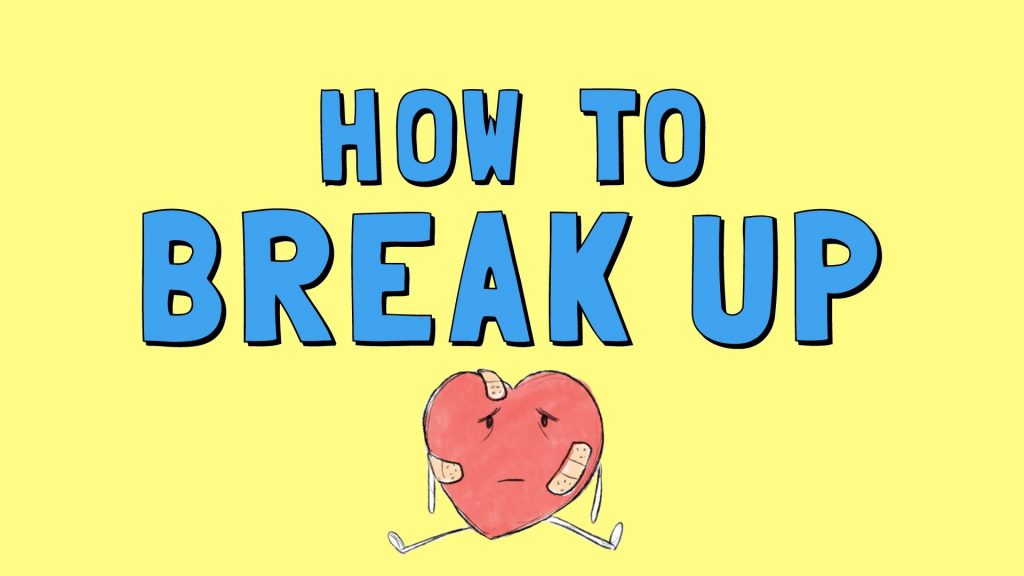 From the dark holes of sleepless nights to crying fits on the bathroom floor to feeling numb in a giant void, a breakup can be a vulnerable and confusing time for everyone involved.
From the dark holes of sleepless nights to crying fits on the bathroom floor to feeling numb in a giant void, a breakup can be a vulnerable and confusing time for everyone involved.
Many of the best breakup guides tell the brokenhearted to lean on their friends. But what if you're the friend they tap on, and you have no clue where to start? As a friend, you may feel a heart tug to help but you don't know how. You may feel compelled to share comforting words but hesitate because you don't want to say the wrong thing. You may want to check in on your friend but don't want to overstep.
These are all valid thoughts because there are definitely helpful and not-so-helpful ways to support a friend through a breakup. So, here is a guide to help you stay mindful while caring for a heartbroken friend.
Helping a friend through a breakup.
Breakups are where friends are needed. Friendships are often based on being together through the highs and lows of life, and romantic breakups can be some of the lowest kinds of lows.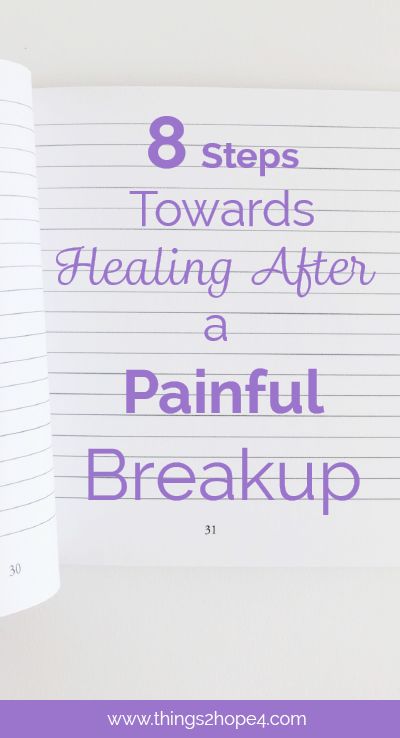 One study published in the Journal of Family Psychology found experiencing a breakup is associated with a decline in life satisfaction and an increase in psychological distress, while other research has found it can even increase the risk of developing a depressive episode. (Here's how to help a friend dealing with depression, by the way.)
One study published in the Journal of Family Psychology found experiencing a breakup is associated with a decline in life satisfaction and an increase in psychological distress, while other research has found it can even increase the risk of developing a depressive episode. (Here's how to help a friend dealing with depression, by the way.)
Health Coach Certification
Download our free guide with the top four skills all Health Coaches need to succeed.
As such, the role of friends during a breakup can't be understated. "Being a source of support and creating a support system for a friend who has been through a breakup is vital," licensed psychotherapist Sola Togun-Butler, Ph.D., LCSW, tells mbg. "People are better able to cope with transitions both planned and unplanned when they have a strong support system."
Togun-Butler describes a support system as a group of people (like family, friends, and colleagues) who provide emotional support in a time of crisis.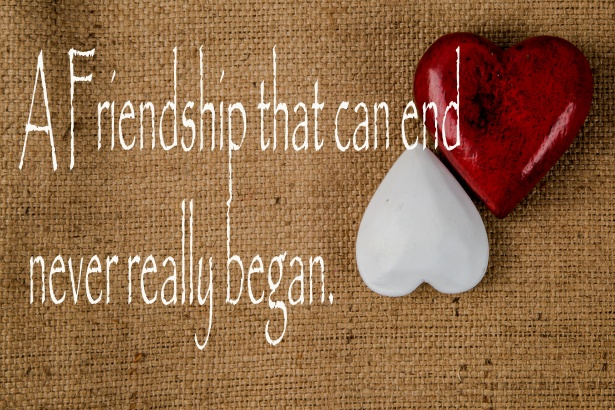 This support can even protect against both physical and mental illness, she adds, as well as help the heartbroken person develop more effective coping mechanisms.
This support can even protect against both physical and mental illness, she adds, as well as help the heartbroken person develop more effective coping mechanisms.
Depending on where you decide on your friend's breakup journey to get involved, your role as a friend can vary. Leaning into the concept of impact versus intent is key. You need to think through how your actions will actually impact your friend—because this breakup is not about you.
What
not to do.If you are choosing to help a friend, here are a few things to avoid:
1. Do not assume. Ask.
Even if you've been through a breakup before, everyone likes to be cared for in different ways. You may think you know what your friend wants during this vulnerable time, but you might be wrong. The only way to be sure is to ask your friend directly what they want or need.
"We love our friends and think we know them best, but I would refrain from offering advice if your friend isn't looking for it," sex and love educator Jayda Shuavarnnasri tells mbg. "And if you're not sure, just ask them! Some things you can ask: 'Do you want me to be petty? Do you want me to hype you up? Do you need to vent to me right now?'"
"And if you're not sure, just ask them! Some things you can ask: 'Do you want me to be petty? Do you want me to hype you up? Do you need to vent to me right now?'"
Let your friend take the lead for how they want to process their breakup.
2. Do not overrely on drugs or alcohol.
It might feel comforting in the moment to share a bottle of wine and cry it out. But be careful about encouraging overreliance on substances like drugs or alcohol to soothe the pain, as these are Band-Aid solutions that don't allow for the deep emotional processing that is necessary to get through a breakup. Keeping long-term solutions in mind, you eventually want to encourage your friend to take care of themselves holistically. This can include simple daily practices like drinking more water, getting sleep, moving their body, and getting fresh air and sunshine. As a friend, you're there to provide little nudges throughout the breakup.
3. Do not bash the ex.
If your friend was in a bad relationship or had a bad breakup, you might feel compelled to immediately trash talk the ex once it's all over. But talking down or badly about the ex isn't helpful in the long term. As the saying goes, "Where your mind goes, your energy flows." Keeping thoughts and words in a low energetic state of bashing your friend's ex will keep everyone's thoughts in a circular pattern of negativity.
"No matter how it ended, I try to remind myself that we are all human, including my exes," Shuavarnnasri says. "Rather than forcing myself to feel a particular way, I allow conflicting feelings to exist at the same time and say, 'This person really hurt me, what they did was not OK, and I still care about them.' This doesn't mean that I justify their feelings or even have to forgive them. It also doesn't mean something is wrong with me for continuing to love them. It just means we're all human."
It just means we're all human."
4. Do not push them to do things your way.
Again, we all heal differently.
"Try not to pass judgment on how a person chooses to heal," Shuavarnnasri says. They add, "If your friend engages in behaviors that are destructive, be the compassionate friend who can lovingly support them to behave in ways that are more aligned to their values."
Shuavarnnasri says practicing nonviolent communication skills can help in these situations. Nonviolent communication is "when we use empathy and compassion within our language," they explain. This can sound like, "I know all of this is really hard, and I know you're trying your best. I'm also noticing some behaviors that might be hindering your healing process. Are you open to hearing my suggestions?"
This example demonstrates how centering your friend, their values, and their feelings is key to moving them through the process of a breakup.
5. Do not rush the process.
"It is important not to rush the grieving process by telling a friend to quickly 'get over it' because we want to fix the situation and get them back to their old selves," Togun-Butler advises. "Everyone grieves differently, and there is no timetable for grief. Grieving the breakup of a relationship can take anywhere from six months to two years."
Breakups are different for everyone. Setting a time limit on expected healing milestones isn't helpful, nor is it realistic. As Shuavarnnasri points out, healing is not a linear process. There may be days when it feels like your friend is doing well, then all of a sudden they seem "back to where they started." In actuality, all emotions are welcome as part of the process, no matter what order they show up in. (Here's more on how long it takes to get over a breakup.)
Ways you can help.
Here are a few tips to help you jump in as a supportive friend during a breakup:
1.
 Check in with yourself first.
Check in with yourself first. Make sure you have the time, emotional resources, and possibly extra funds for outings and gifts to follow through with what you're committing to when choosing to help your friend. It is more helpful to communicate your capacity to help instead of overpromising and overcommitting. If you set up dinner plans but then have to cancel last minute, this may be more detrimental for your friend who's already in a fragile state. Be considerate about how you're showing up for them.
2. Create safe space.
"It is important to create a safe space for a friend to express their feelings after a breakup. A safe space is a communication environment that is kind, empathetic, and nonjudgmental, where the friend feels safe to talk about how they are feeling without the fear of judgment or invalidation," says Togun-Butler.
Showing kindness, empathy, and nonjudgment can take some time to develop, but you'll never learn if you don't try. Even if it's your first time creating a safe space for your friend, you can communicate what you're trying to do—and, as mentioned earlier, follow their lead.
Even if it's your first time creating a safe space for your friend, you can communicate what you're trying to do—and, as mentioned earlier, follow their lead.
3. Validate your friend's feelings, even digitally.
If you're talking about the breakup over text, prioritize letting your friend know they are being seen and heard.
"When it comes to supporting someone through text, I would lean toward words of affirmation and continuing to remind the person that the pain they're feeling is totally normal," Shuavarnnasri shares. "Text is limiting for true reflection conversations, so when I know a friend is having a rough moment, I'm usually a sounding board, validating their feelings and making sure they don't feel alone."
Validating feelings can sound like:
- "That must be really hard."
- "I hear you.
 "
" - "That sounds encouraging."
- "I'm here for you."
4. Respect your friend's boundaries.
Related to following their lead, Togun-Butler says to make sure you respect your friend's boundaries. They may not be ready to talk or see anyone. If they clearly communicate that they don't want to be bothered just yet, respect their requests. "Do not violate the boundaries set up by your friend as they grieve the loss. Emotional boundaries are necessary to ensure emotional health," she says.
Shuavarnnasri also adds, "As friends we often want to share advice or share our personal experience with breakups, but that might not always be helpful. Before sharing advice, ask the person if that's what they need or if they just need to be heard. "
"
5. Make space for grief.
"When I work with folks who are going through a breakup, I remind them that the endings of a relationship (even if you decide to remain connected in some capacity) are a grieving process. We are losing a relationship and connection to a person who played a significant role in our lives," Shuavarnnasri offers.
They recommend thinking about the five stages of grief as a guide to help think about the post-breakup grieving process:
- Denial
- Anger
- Bargaining
- Depression/Sadness
- Acceptance
That said, the grieving process is not linear, Shuavarnnasri reminds, and people may move back and forth between these stages throughout their healing.
"There is no time limit or rush when it comes to healing. It can be hard to witness people we love in pain, and sometimes we want to rush them through the process, but as I mentioned before, healing isn't linear, and it can take two days or two years for someone to finally feel free from their breakup."
6. Keep your friend at the center of conversation.
"A big part of getting through a breakup involves doing things that remind you of who you are as an individual, without that person in your life," Shuavarnnasri says.
So as a friend, it can be helpful to guide the brokenhearted through questions like:
- What are the things you enjoy?
- What are the things you like to watch?
- What are the places you like to visit?
- What aspirations do you have that are just yours?
"Going through a breakup can feel like recalibrating back into autonomy, and it can even feel like meeting a new version of yourself for the first time, which I think is exciting," adds Shuavarnnasri.
7. Help them self-care.
It might sound counterintuitive, but as a friend, you can help the brokenhearted with some self-care. Shuavarnnasri suggests, "Every person is going to handle the initial days and weeks after a break up differently. Some of the most helpful things we can do are connect with friends who feel safe and find ways to self-soothe. Self-soothing can range from bingeing a Korean drama on Netflix, staying cozy in our favorite sweater, cooking or going to eat our favorite meal, or maybe going for a walk."
As a friend, you're a special person in their life who knows the little things about them that make them smile. The small act of help can be something like curating the list of K-dramas, making sure they have other cozy accessories to match their cozy sweater, helping them get ingredients to cook their favorite meal, or going on a walk with them.
8. Encourage joy.

Emotional processing, especially after a breakup, is a lot of work. You can be the friend who brings some lightheartedness to the season of healing. "Encourage them to engage in activities with you that they enjoy such as exercising, going for a walk, going out for lunch, or a long drive," Togun-Butler says.
It could be a great time to rediscover layers of your friendship. Perhaps you met at a dance class, and you can learn a new routine together. Or you might enjoy beauty, so you try out a new skin routine together. Anything that can bring out joy in your friend is a good starting point.
9. Give it time, and tap on the professionals when needed.
Togun-Butler notes that getting over a breakup can take anywhere from a few months to a few years. That said, if you're concerned about your friend's emotional state, consider recommending that they get some professional support.
"If we are concerned about the length of time a friend is grieving the loss of a relationship because it is impacting their daily functioning, we can encourage them to speak to a professional such as a therapist.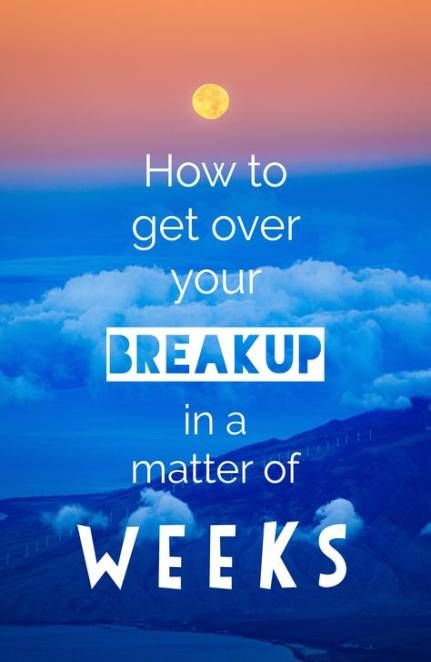 A therapist can help them work through their emotions and cope effectively with the loss of the relationship," Togun-Butler says.
A therapist can help them work through their emotions and cope effectively with the loss of the relationship," Togun-Butler says.
The bottom line.
Breakups are a process of loss—a loss of love, relationship, a sense of self, and a sense of place in the world. For some, romantic breakups conjure some of the most emotionally complex moments in their lives. One moment they're sad, then angry, momentarily happy, then sad all over again. Witnessing the waves of emotions rise and fall through someone is hard to watch but usually necessary for friendship growth. Stick by your friend, and more often than not, on the other side of the tumultuous breakup lies a more enriched friendship.
How to survive a breakup - advice from a psychologist
- Two types of relationships
- Causes of neurotic love
- Five consequences of parting
- How to help yourself
- How to survive a breakup
- Psychologist's advice
Healthy and neurotic relationships
Breaking up a relationship is always stressful and difficult to deal with. Moreover, a gap can occur both in healthy relationships and in neurotic ones. Breaking up a healthy relationship is easier. In such cases, the couple is usually in dialogue, this decision does not become a bolt from the blue. Most often, the decision to leave is made together, the partners are prepared for changes in life, everyone is confident in their abilities, expects the best from the future and is adapted to a new life. Of course, even if the decision was balanced, it takes time to emotionally, physically and from the everyday point of view to separate from the partner, to adjust to a new rhythm. And yet, in this case, all this is experienced as something that can be overcome and lived on.
Moreover, a gap can occur both in healthy relationships and in neurotic ones. Breaking up a healthy relationship is easier. In such cases, the couple is usually in dialogue, this decision does not become a bolt from the blue. Most often, the decision to leave is made together, the partners are prepared for changes in life, everyone is confident in their abilities, expects the best from the future and is adapted to a new life. Of course, even if the decision was balanced, it takes time to emotionally, physically and from the everyday point of view to separate from the partner, to adjust to a new rhythm. And yet, in this case, all this is experienced as something that can be overcome and lived on.
Breaking up neurotic relationships is more difficult. In this case, within the union there was no practice of confidential communication, an open dialogue, where partners frankly express their will and desires. Often partners do not even really know each other, do not seek to understand the motives and feelings of a partner. If the breakup and separation come as a surprise, it is highly likely that it was a neurotic relationship.
If the breakup and separation come as a surprise, it is highly likely that it was a neurotic relationship.
In this situation, the one who did not make the decision to leave is going through a difficult and traumatic experience. This can exacerbate chronic psychological trauma, which will “finish off” a person already exhausted by a break. Fortunately, this experience can become a turning point in understanding yourself and your needs, pathological attitudes and broken schemes in the field of love (and not only) relationships.
Causes of neurotic relationships
Neurotic love, like toxic relationships, originates in childhood and reflects relationships with parents. For example, if a child suffered from the coldness of his parents, it is likely that in adulthood he will look for the same partner. His ideas about love and relationships are associated with detachment, so the colder the better.
Another example: it is not uncommon for depressed parents (or one of them) to instill guilt in the child. This happens automatically and sometimes without the parents realizing that the child is constantly suffering from the fact that he cannot make mom or dad happy. Such a child will look for a partner who is difficult to please.
This happens automatically and sometimes without the parents realizing that the child is constantly suffering from the fact that he cannot make mom or dad happy. Such a child will look for a partner who is difficult to please.
Neurotic relationships differ from healthy ones in that, firstly, the partner “loves” through suffering, because, unfortunately, he has no experience of relationships in which everyone is satisfied and happy. He loves those who do not value him, repels and brings pain. Such relationships are based on the fact that a person revisits the cinema of the past over and over again: despite the fact that his partner is cold, nevertheless they are together, which means that it is similar to what happened to him in childhood - in his understanding, this and there is love that he associates with any kind of suffering, just not to be abandoned.
Therefore, when such a person is abandoned by a partner in adult life, the picture of his childhood, in which he was not noticed, did not share warmth with him and did not pay due attention, comes to life. The biggest fear of his childhood came true - he was abandoned after all. The suffering that arises in response is chronic trauma. They are so painful that they do not allow you to look at this situation differently and benefit from it, for example, recognize the previous relationship as destructive, draw conclusions and still find that person who will honestly love in return.
The biggest fear of his childhood came true - he was abandoned after all. The suffering that arises in response is chronic trauma. They are so painful that they do not allow you to look at this situation differently and benefit from it, for example, recognize the previous relationship as destructive, draw conclusions and still find that person who will honestly love in return.
© chuttersnap/Unsplash
Defense reactions of the psyche
If the separation caused the revival of old sores, the psychological defense mechanisms will be the first thing to stabilize the mental state.
- Negative
“No, this will pass and we will be together again!” A person who uses denial will selflessly look for signs that he is right. For example, a woman can persuade herself that even though her partner left her, he did not leave for another, which means that he does not love anyone and will soon return back. - Displacement
An abandoned partner can tell himself: “Nothing terrible happened, it will hurt and be forgotten. ” However, this pain can drag on for several years and become chronic. Those who manage to repress unpleasant experiences may not pay attention to internal discomfort and unhappiness, as they have become accustomed to this as their usual state.
” However, this pain can drag on for several years and become chronic. Those who manage to repress unpleasant experiences may not pay attention to internal discomfort and unhappiness, as they have become accustomed to this as their usual state. - Regression
This psychological defense mechanism can induce a person to tantrums - a primitive form of removing responsibility for what is happening. Or, on the contrary, regressing, a person can literally freeze: emotions, as well as will, appetite, desire to live, disappear. A depressive period may begin. - Sublimation
Well known to those who tend to overlook unpleasant experiences. By sublimating, a person can completely go into work or any other activity that helps to forget and not think about the traumatic event. - Acute reactions, aggression towards others and self-aggression
If the tension in the psyche is great, it will look for a way out, for example, in the form of sharp reactions: aggressive attacks, a tough style of communication (for example, at work or driving), angry posts on social networks, frequent sexual contacts that carry a feeling of disappointment, leaving in alcohol and drugs.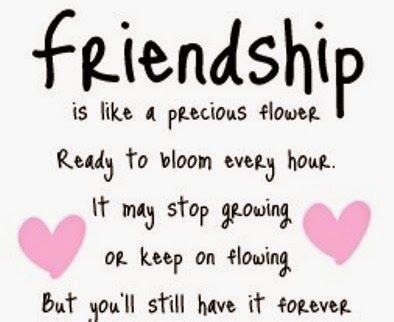
All these mechanisms work unconsciously, that is, they manifest themselves not by the will and desire of a person, but automatically. The mind may say that drinking is bad, but the suffering can be so unbearable that any method that allows you to slightly raise the pain threshold becomes suitable.
There is another defense that is at the level of consciousness, which can be controlled and used at the right time. This is the so-called psychological compensation , which is expressed in adaptive behavior. For example, in order not to meet with the former, they block him in the phone book, social networks, and avoid meeting. There is also a reverse situation: in order to better navigate what is happening and get the most complete picture, a recent partner is placed in the field of view. Behind this, there may be a desire to clarify everything to the smallest detail and once again make sure that "this is actually happening."
Whatever type of protection works, you need to remember that this is a natural reaction to severe stress and any psychological protection performs an important function - to protect the psyche from destruction. It is important that after the defense stage, the mourning phase begins, when the fact that everything is over and you can mourn your pain is recognized - this is a natural process when working through the loss of a relationship with a loved one.
It is important that after the defense stage, the mourning phase begins, when the fact that everything is over and you can mourn your pain is recognized - this is a natural process when working through the loss of a relationship with a loved one.
© Ben Blennerhassett/Unsplash
How to help yourself
Breaking up a relationship is a big mental burden. We don’t just say “heart breaks” or “soul hurts” - the body is actually going through a serious psycho-physiological stress. The cardiovascular system, digestion, hormones, sleep and ability to rest, the natural rhythm of day and night, all come under attack.
During difficult changes in life, it is very important to remember that you are in an unusual state for yourself, and, if possible, help yourself: eat fully, get enough sleep, do exercises to relieve stress, eat those foods that give strength and do not burden the body .
How to tell a healthy relationship from a toxic one: 5 red flags
It's fair to say that not all stages of stress can be done at all. Sometimes lying flat and staring at the wall is the best thing you can do to help yourself. Take care of yourself whenever possible - take time off from work and order take-out instead of cooking. Try to prepare for yourself the space and time where you can fully surrender to your experiences.
Sometimes lying flat and staring at the wall is the best thing you can do to help yourself. Take care of yourself whenever possible - take time off from work and order take-out instead of cooking. Try to prepare for yourself the space and time where you can fully surrender to your experiences.
In order for the process of loss to proceed smoothly and end, it is very important to honestly go through all its stages. After the first wave of shock subsides, the stage of aggression begins, interspersed with rationalization - the desire to talk to the partner again and again and thus improve the state of affairs (the so-called bargaining stage). These steps can take varying amounts of time and, unfortunately, it is not possible to predict their duration.
One of the last stages is depression - not so acute, but a stable condition. It is easy to recognize it by a breakdown, dulled feelings and reactions, inability to enjoy, sleep and appetite disorders. Despite the difficult course, this is a very important period that prepares us for the final resolution of the situation - the stage of acceptance and the end of mourning.
Unfortunately, there are no recipes for how to shorten the most painful stage, but to ease the condition, allow yourself to do whatever you want. If you want to leave - try to do it, if you want to lock yourself in the apartment - try to take sick leave. Do not neglect the help of others, but set the limits of what is permitted: tell your family and friends how they can be useful to you and how closely you are ready to communicate now. Ask not to discuss certain topics with you, not to arrange surprises for you to “stir up” and so on. Openly tell them what you need: from domestic to emotional needs. Your sincerity will help set up communication with friends and relatives, who, unfortunately, do not always know how to behave correctly in such situations.
© Jorge Flores/Unsplash
How to survive a breakup with a loved one
Disrupted communication is one of the main reasons that partners move away from each other and cease to adequately assess the state of affairs. To prevent this, pay attention to whether there is a reticence between you and your partner, silence of any feelings or facts, or maybe someone in your couple expects his thoughts to be read, and thus avoids responsibility ? Silence, ignorance, as well as references to social standards and generalizations ("You're a man!" or "A wife should...") destroy trust and intimacy. Features of your unique relationship can be replaced by “life principles” and public opinion about how everything “should be”, which prevents you from following a special scenario that is suitable for your couple.
To prevent this, pay attention to whether there is a reticence between you and your partner, silence of any feelings or facts, or maybe someone in your couple expects his thoughts to be read, and thus avoids responsibility ? Silence, ignorance, as well as references to social standards and generalizations ("You're a man!" or "A wife should...") destroy trust and intimacy. Features of your unique relationship can be replaced by “life principles” and public opinion about how everything “should be”, which prevents you from following a special scenario that is suitable for your couple.
How and why to repair broken relationships
Proper communication depends not only on the degree of closeness and honesty to each other (and to oneself), but also the style of conflict resolution. Family therapy is based on this idea: starting it, partners learn safe ways to express their desires, suffering, fears, learn to enter into conflict and resolve it. The therapist, as a referee, observes the dialogue, leads both partners to ensure that they get the result and satisfaction from the interaction.
If you feel that you no longer have the strength to explain what is happening between you, take a few sessions of couples therapy . It will quickly become clear whether you need to continue working on the relationship or whether to stop it. It is important to remember that the therapist does not choose sides and will not support the game of one of the partners to the detriment of the other. The therapist acts as an interpreter between two people who, for some reason, began to speak different languages.
How to avoid a destructive scenario in the future — advice from a psychologist needed.
Neurotic or toxic relationships are different in that they are used to reduce the degree of personal neuroses and work off personal problems. If both partners coincided in neuroses, the union can be stable and strong. For example, someone for whom it is important to exercise control in relation to the closest person meets someone who gladly accepts this control due to their own childhood traumas.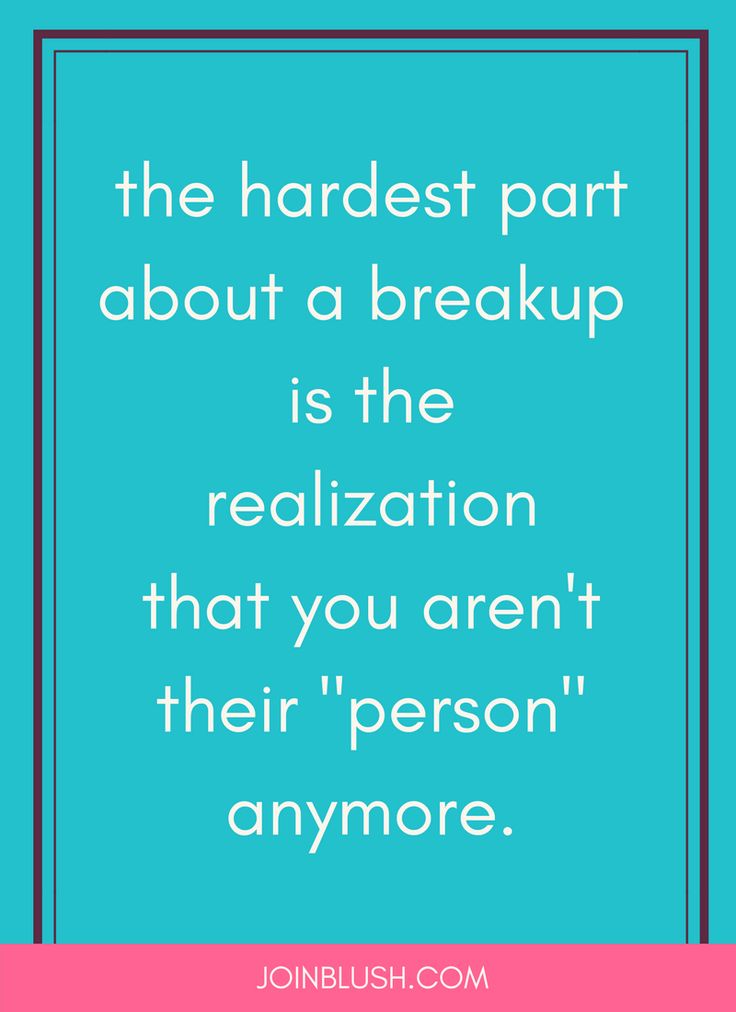
Another case is when one of the partners does not need to work out the pathological scenario and still meets a less stable person and serves as a constant source of relaxation and recharging for him. Then a person who becomes a testing ground for working off a neurosis will most likely want to give up relationships that drain him.
Other roles we play in relationships can be learned from transactional analysis . The main idea of this method is that each of us in different life situations takes the position of a child, parent or adult. Knowing your patterns of behavior, you can adjust the attitudes and inadequate expectations from the relationship. This is important, since a full-fledged and multifaceted strong union is possible when two "adults" meet who know their needs, boundaries and their weaknesses. Knowing these weaknesses allows you not to provoke situations where they can manifest themselves to the detriment of the couple.
All this may seem rather complicated, but in reality, in order to have a healthy and strong relationship, it is not at all necessary to store a store of knowledge in theoretical psychology. To choose a suitable partner, it is important first of all to solve your personal problems, get to know yourself, find out your preferences, understand what attracts in people and what repels you. Mark for yourself with whom you manage to build strong contact, and who you don’t want to see even as friends. Do not forget what is valuable in a relationship, what kind of alliance you would like to build with another person and how you see your happiness in a couple.
To choose a suitable partner, it is important first of all to solve your personal problems, get to know yourself, find out your preferences, understand what attracts in people and what repels you. Mark for yourself with whom you manage to build strong contact, and who you don’t want to see even as friends. Do not forget what is valuable in a relationship, what kind of alliance you would like to build with another person and how you see your happiness in a couple.
What to do after a breakup:
• Three sessions against depression. How to train the brain to be happy and healthy.
• How to tell a healthy relationship from a toxic one: five red flags.
• How to mend relationships if they have been broken.
Tags: relationship
How to survive a breakup - Lifehacker
Why you feel bad from a scientific point of view
At the very beginning of a relationship Reward, Motivation, and Emotion Systems Associated With Early-Stage Intense Romantic Love, oxytocin and dopamine are produced in the brain. When a partner is nearby and everything is fine, the reward system turns on and a whole cocktail of hormones is released into the blood. And we think we are happy.
When a partner is nearby and everything is fine, the reward system turns on and a whole cocktail of hormones is released into the blood. And we think we are happy.
After a breakup, the reward system stops working, the body begins to break down Reward, Addiction, and Emotion Regulation Systems Associated With Rejection in Love. Stress hormones produced affect the immune system Affective immunology: where emotions and the immune response converge, digestive and cardiovascular Neurohumoral features of myocardial stunning due to sudden emotional stress systems.
The systems that are responsible for the perception of pain are also activated. That is why it seems to the brain that we are physically hurt Separate neural representations for physical pain and social rejection, although in fact everything is in order with the body.
How to survive a breakup
Allow yourself to suffer
Yes, that's right. There is no need to artificially invigorate. I want to cry - cry. If you want to scream - scream (just don't forget about the neighbors who can hear you). Sing sad songs in the shower. Watch TV serials.
I want to cry - cry. If you want to scream - scream (just don't forget about the neighbors who can hear you). Sing sad songs in the shower. Watch TV serials.
You will be told that everyone breaks up and you don't need to make a tragedy out of it. Don't listen or try to hide the pain. No one knows what's in your heart but you. If it hurts, let it hurt. Cry until the tears run out, until you feel better, or at least until the devastation sets in.
Your strength will return, but it will take time. Each person has their own time.
Don't blame yourself
The decision to break up doesn't come overnight. And not even for a month. Most often, it is accompanied by a long process of reflection.
The reasons can be very different. But that doesn't mean you missed something somewhere. This means that both of you have long begun to lose contact.
Responsibility always lies with both, although not always equally. It is not necessary to calculate who is more to blame.
Look to the future and don't repeat your mistakes.
Don't blame yourself. Yes, you could get irritated less often or demand less. But the partner could talk to you about it.
Don't try to get your partner back
If it seems to you that there's nothing left in your life and you need to get everything back, stop. Fear speaks to you.
It's scary to be alone after a long relationship. And this is a completely normal reaction.
Do not give in to fear. Don't try to get your ex back with humiliated requests. Even if he returns, nothing good will come of such a relationship.
Get down to business
When the first acute pain passes, go where you couldn't or didn't have time to go together. Watch movies that you liked but your ex didn't. Think about a hobby abandoned during a relationship.
Do things you would never do together. This will allow you to feel a freedom that was not there before.
In many cities dance studios, drawing, clay modeling, knitting or metal burning studios are now open. Trial lessons are often free. Why not try? In the worst case, you will lose an hour. At best, you will find a job that you love with all your heart.
Trial lessons are often free. Why not try? In the worst case, you will lose an hour. At best, you will find a job that you love with all your heart.
Get moving
Immediately after a breakup, many people lose weight because they can starve for days on end. But when the resources of the body are completely depleted, the appetite wakes up and the weight begins to grow.
At the same time, you want not just to eat, but to seize a bad mood with high-carbohydrate foods: pizza, ice cream, chocolate. If at the same time you move a little, the weight will grow even faster.
Therefore, you need to move, even if only minimally.
Make a list of good things
Do you think the world has faded and nothing good is left? This is not true. Your brain simply reacts to stress, and one day the black bar will end.
In the meantime, make a list of the good things you have. Work, friends, books, a collection of stamps or favorite cups, the taste of hot coffee in the morning, the smell of freshly cut grass, shopping - whatever brings you joy.
Work, friends, books, a collection of stamps or favorite cups, the taste of hot coffee in the morning, the smell of freshly cut grass, shopping - whatever brings you joy.
Add items to the list regularly, and when it gets really bad, re-read.
Change of scenery
If everything around reminds you of a former partner, you should think about changing the situation. Can't leave? Rearrange, buy new curtains or dishes. Changing the color scheme will help you tune in a different way. Experiment.
Read also 🏡
- 13 apps and services for interior design
- 11 ways to add color to the interior and not overdo it
- How to create a luxurious interior on a small budget
Chat with friends
You can talk to them, they will support you in difficult times. But do not forget about their feelings, ask before talking about the breakup. Perhaps at this very moment your friend is not ready to listen to you or ready, but not able to give advice.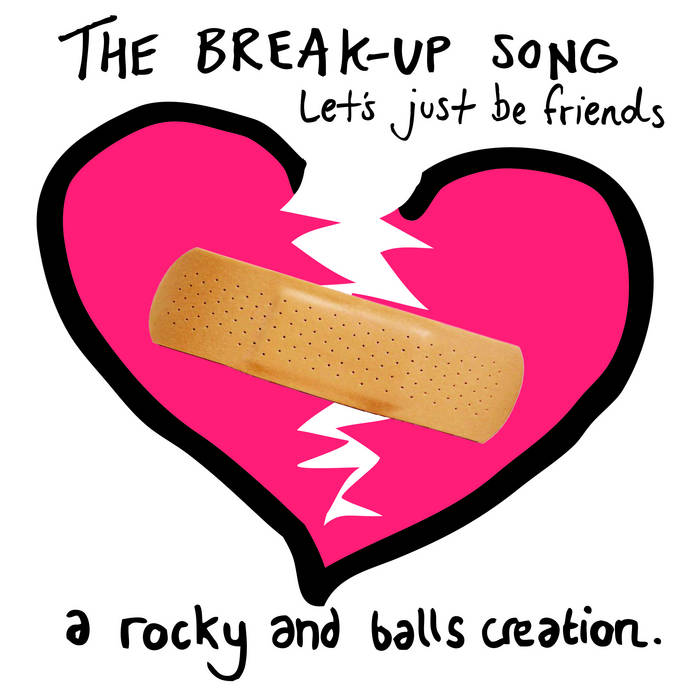
Sofia Enikeeva
psychologist, coach
Do not communicate with those people who will aggravate your emotional state with phrases like "I told you, it's my own fault." As soon as you find something that can bring you relief, and those people who will support you, immediately start using this resource.
And don't forget to listen and support your friends in return.
Do 5 Exercises
The exercises recommended by psychologist Daphne Rose Kingma in her book How to Get Over a Breakup will help you understand why things happened the way they did. The main thing is to take them only when the first pain subsides. Otherwise, they can make things worse.
You can print on the computer or take a separate notebook. The second option has an advantage: the paper can be symbolically torn or burned after the exercises are completed.
Do not do exercises in succession. Take on the next one when the emotions subside. Do not try to unsubscribe: this is not an essay that needs to be completed and handed in as soon as possible. No one but you will see what you write.
No one but you will see what you write.
1. Return to the roots
Briefly tell us about your acquaintance, first date, the beginning of a stormy romance, the time when you just moved in together. Describe exactly what hopes you had for your ex-partner.
Now focus on the "evidence" - something that even then foreshadowed problems. It could be some physical or psychological trait.
2. Describe how your relationship developed
First of all, tell us about what happened in your life outside of the relationship. Describe your status at that time. Have you ever been single or have you dreamed of falling in love? Or maybe you were in a relationship with another person? What did you want to achieve? What to experience?
Describe what you could offer your partner and what he or she could offer you.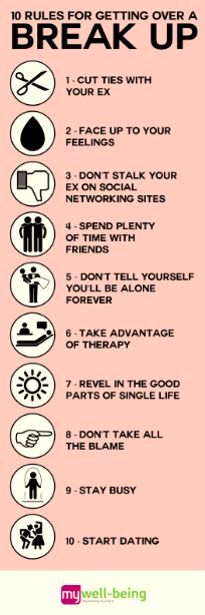
Now describe how and when the "evidence" appeared. What did you feel?
Imagine that a movie is being made about your relationship. What name would you give it? You can describe the poster and come up with a synopsis of the story.
Tell us the real reason for your breakup. Is this reason related to the task of developing you or your partner?
Daphne Rose Kingma
psychologist, writer
A few examples: “I outgrew my need for a mommy”, “I finally understood my strengths”, “We raised children”, “We were connected only by sex, it was not enough.”
3. Analyze the gap
Mentally return to the turning point. When did you realize that something inside clicked and hurt? If you were not the initiator of the gap, then this happened later. Describe your feelings at that moment.
Make a list of reasons why your relationship would still fail.
Write a poison letter to your ex. Freely express your repressed emotions in it, whether it be pain, rage or anger.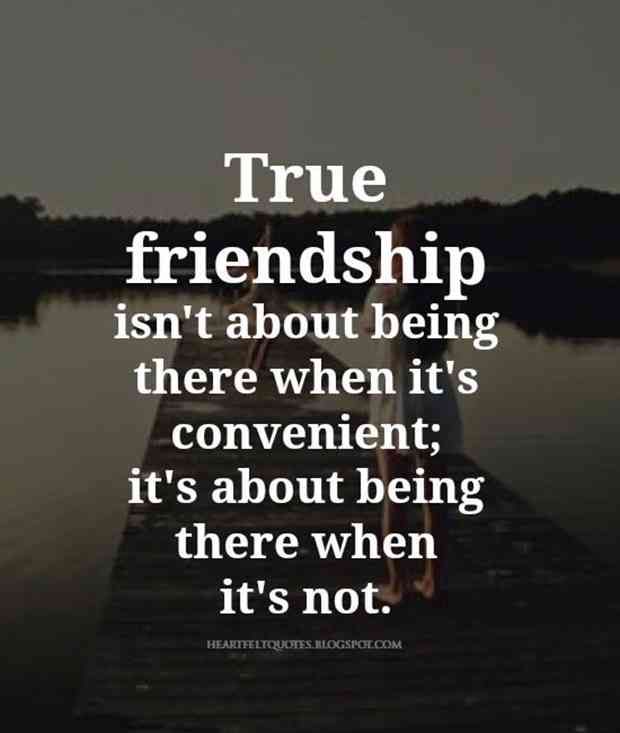
Now describe your feelings of guilt. You can self-flagellate as much as you like - the paper will endure everything.
Remember that there are two manifestations of guilt. The first has to do with self-flagellation. The second is a real confession of guilt for some actions. Remember the times when you manipulated, said nasty things, tried to make your ex-partner angry.
This is unpleasant, but it will help you recognize your shortcomings and get rid of them.
Now write a confession letter to your former partner. You do not need to show him or her what you have written - this is done only for you. Admitting mistakes frees you from guilt.
Finally, write a letter of forgiveness to yourself. You have done a great job and deserve forgiveness from the most important person in your life - yourself.
4. Describe all the good things that this relationship gave you
Try writing a thank you note to an ex or ex.
5. Reassess reality
Reassess reality
Think of a new role for your ex.
Describe the task you are currently facing. What do you want from the future? How do you see your new partner?
Daphne Rose Kingma
psychologist, writer
Regardless of how people feel about their breakup, whether they understand that they are still in anguish and confusion, whether they are convinced that they will never be able to come to terms with a breakup, they all left after classes with the feeling that they managed to rise to a more conscious level of perception.
See a psychologist or psychotherapist
Pain after a breakup is normal. But if it doesn't go away, you may be depressed. If you do not eat all day or, on the contrary, overeat, if you are depressed and everything falls out of your hands, if you think slowly and do not move at all, it's time to think about a visit to a psychotherapist.
Read also 🙎♀️🙎♂️
- Why you should not be embarrassed to go to a psychotherapist
- How to choose a good psychotherapist and not be broke
- How to know when it's time to see a psychotherapist
What not to do to get over a breakup
Don't look for casual sex
Most likely it won't help, and you will feel even worse than before.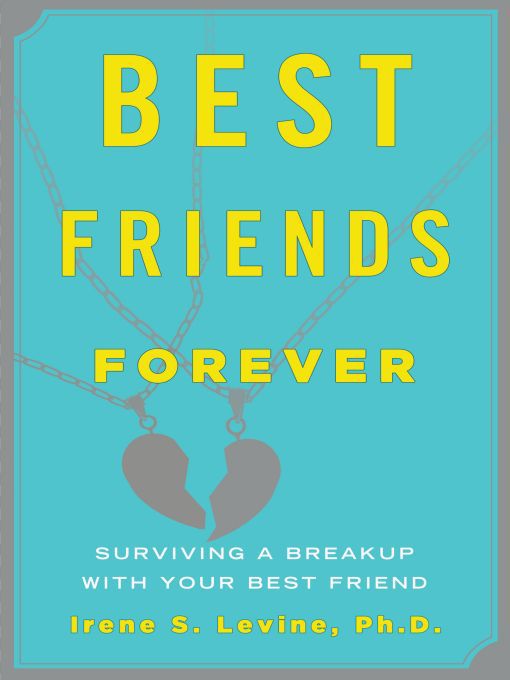 The desire to have sex is generated by withdrawal. The brain lacks oxytocin, and so we look for someone to comfort us.
The desire to have sex is generated by withdrawal. The brain lacks oxytocin, and so we look for someone to comfort us.
Not convinced? Then at least don't get drunk before a date. Alcohol is a depressant. So instead of an enchanting orgasm, you will only get resentment towards the former and a feeling of guilt, and the next morning you will also have a hangover.
And remember about contraception.
Do not bully or blackmail
Emotional blackmail is often used by the person who has been dumped. The goal is to make the former partner feel guilty and uncomfortable. If the former partner really feels guilty, then he will not answer and besiege you when necessary.
Why can't you do that? Because it's low.
Do not start a relationship immediately after a breakup
Some people try to forget their former partner in this way. Sometimes it works. Sometimes new relationships are strong. But more often than not, they only make things worse. The patch won't help when you need stitches.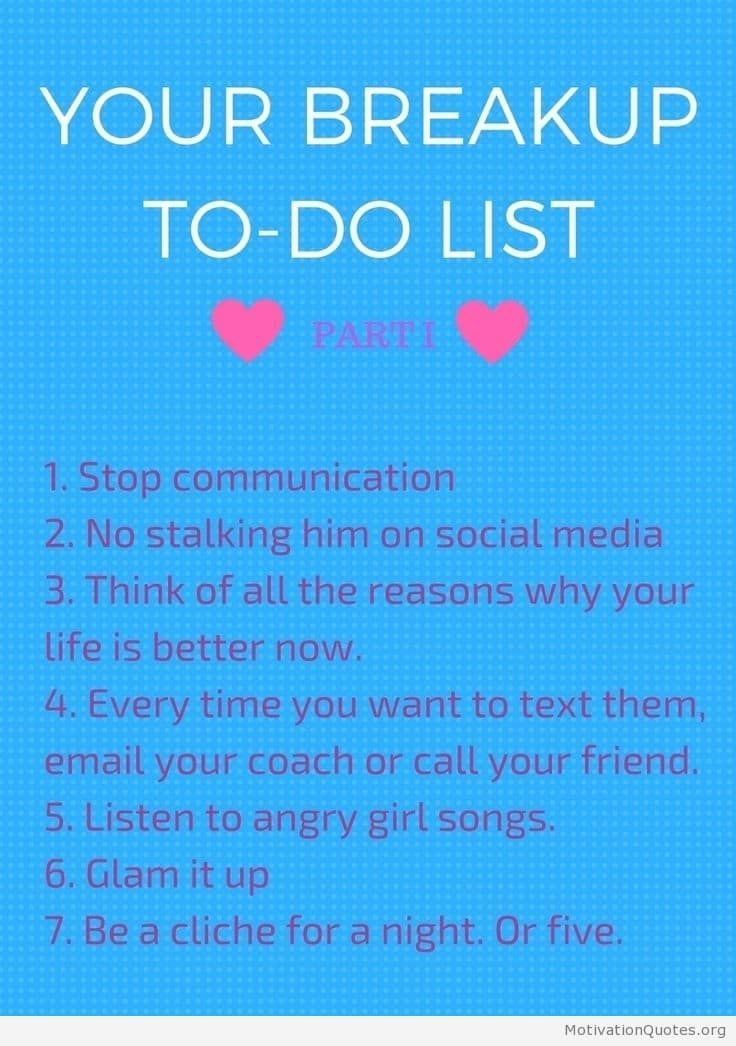
Don't force mutual friends to take sides
Don't give ultimatums in the first place. People don't like it.
If your former partner was abusive, mistreated or violent, and your friends still associate with him and take his side, consider whether you need such friends.
Read also 👀
- 12 mistakes after a breakup that will turn your life into a nightmare
How to forget your ex-partner
Remove him from all social networks
After a breakup, some people start intensively monitoring the social networks of their former passions. Someone - in the hope of seeing signs of an imminent return: "In the last photo, she is sad because she misses me." Someone - out of gloating: "How he got burned on vacation, now, I suppose, the skin is peeling off."
Your former partner has a different life now. And if you see posts about her in your feed, it can be hard for you. So clean up the tape. It will also be useful to delete all correspondence.
Sofia Enikeeva
psychologist, coach
And don't give secret (as you think) signals about yourself. Do not post photos, statuses, quotes like "I'm hard to find and easy to lose" and so on. Realize that the more time and energy you spend on an ending relationship, the more you get stuck in it.
Return all things and gifts to him
Just so that nothing reminds him of the past. This is difficult if you have lived together for a long time and bought a lot together. But without reminders, you can get over the breakup faster.
If he or she doesn't want to take his things, give them to someone or throw them away. You can even break. There is a chance that it will become a little easier.
How to stay friends
You don't have to be good friends if you don't want to. Even if you have several common children or apartments. Only you can decide how to proceed with your ex. Listen to yourself, not to others.
If you still decide to remain friends, that's fine. Let it be hard.
Let it be hard.
Respect each other
This is the most important thing. If you feel like saying something not very nice, try holding back.
Take a deep breath, or several if necessary. Think about why emotions have become so strong and why they are so hard to contain. When you find the reason, it becomes easier.
When you're both ready, it's time to talk about the relationship and why it ended.
Keep your distance
Even though it's hard, you're not together anymore. We need to learn to find new boundaries in relationships with each other, and this takes time.
If a former partner feels guilty, he may try to help you as before. Do not encourage this and sit on his neck.
Remember that life does not end with relationships. And even if it seems that there is no gap, if you are tormented by guilt, do not despair. Once you lived without your partner, which means you can again.
Parting is the beginning of a new life.



